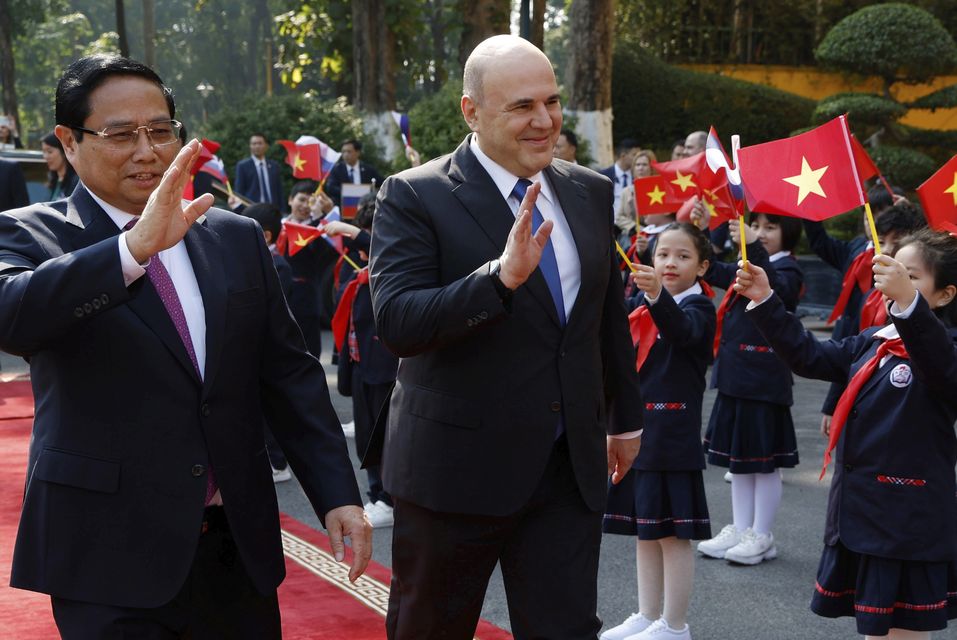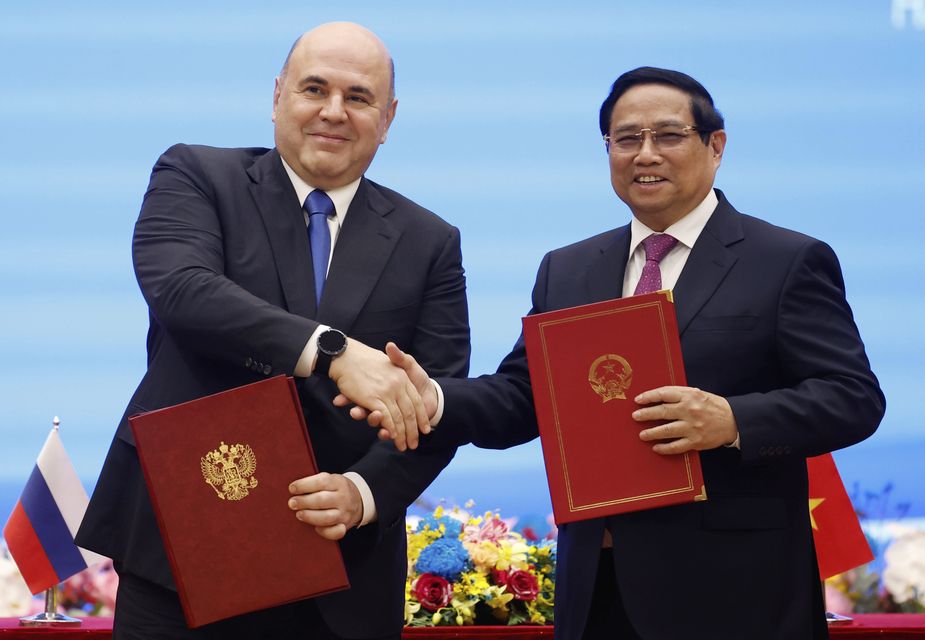Vietnam and Russia have signed an agreement to boost co-operation on nuclear energy as Russian Prime Minister Mikhail Mishustin makes a two-day visit to Hanoi.
The Southeast Asian country has been trying to revive its nuclear energy plans after shelving the construction of two nuclear power plants in 2016 due to ballooning costs and concerns around safety. It hopes to become energy-sufficient and reach its goal of curbing additional greenhouse emissions by 2050.
The agreement was signed on Tuesday between Russia’s state-owned nuclear energy company Rosatom and Vietnam’s state-owned power utility EVN.
Vietnamese Prime Minister Pham Minh Chinh and his Russian counterpart, Mikhail Mishustin, attend a welcome ceremony in Hanoi (Dmitry Astakhov/Sputnik/Government Pool/AP)
Mr Mishustin also held bilateral talks with his counterpart, Pham Minh Chinh, and met Vietnam’s Communist Party chief, To Lam, and the chairman of Vietnam’s National Assembly, Tran Thanh Man.
“Vietnam is an important partner of Russia in Southeast Asia,” Mr Mishustin said. “Today we plan to discuss with you a comprehensive plan for co-operation between Russia and Vietnam, which runs until 2030.”
He is set to meet President Luong Cuong on Wednesday.
Rosatom’s general director, Alexey Likhachev, arrived in Hanoi earlier on Monday.
He said the company is ready to help Vietnam build nuclear power plants and centres, as well as share and localise Russian nuclear technology, according to Vietnamese state media.
Russia, which has been trying to bolster ties in Asia to offset its growing international isolation over its war in Ukraine, also agreed to transfer a scientific research vessel for marine research.
Russian Prime Minister Mikhail Mishustin and Vietnamese premier Pham Minh Chinh shake hands during the signing ceremony in Hanoi (Dmitry Astakhov/Sputnik/Government Pool/AP)
Mr Mishustin is a technocrat who has maintained a low political profile and was reappointed as Russia’s Prime Minister in 2024.
This is his first trip to Vietnam and comes after President Vladimir Putin travelled to Hanoi in June and agreed to work on a road map for a nuclear science and technology centre in Vietnam.
Hanoi and Moscow have had diplomatic relations since 1950 and have been close allies since the Cold War. Evidence of that long relationship and its influence can be seen in Vietnamese cities where Soviet-style apartment blocks co-exist alongside skyscrapers.
Bilateral trade between Russia and Vietnam was only 3.6 billion US dollars (£3.0 billion) in 2023, compared with 171 billion dollars (£140.6 billion) with China and 111 billion dollars (£91.3 billion) with America.
And while Russia has accounted for 80% of Vietnam’s arms exports since the early 2000s, that has been declining over the years because of Vietnamese attempts to diversify its supplies.

